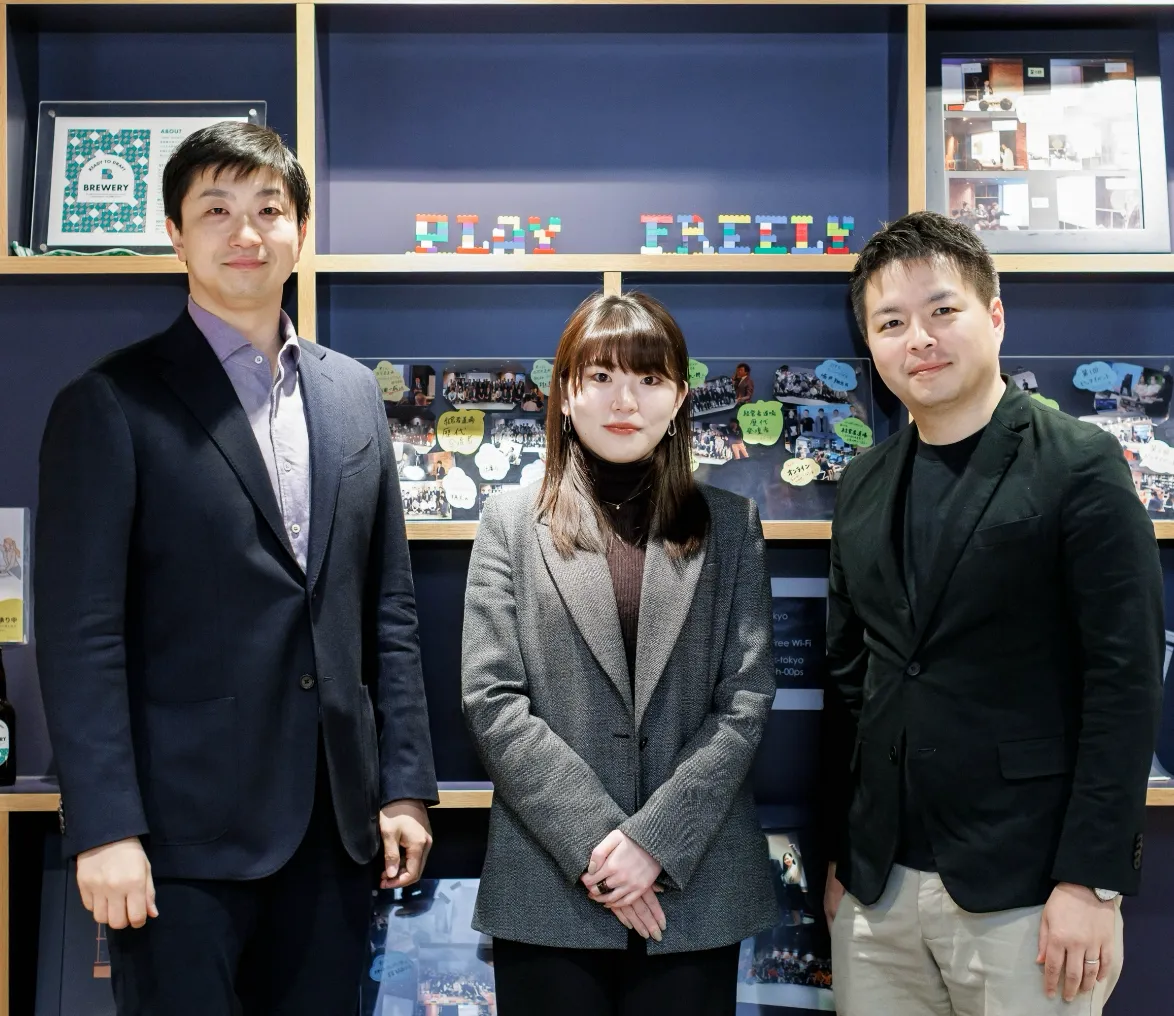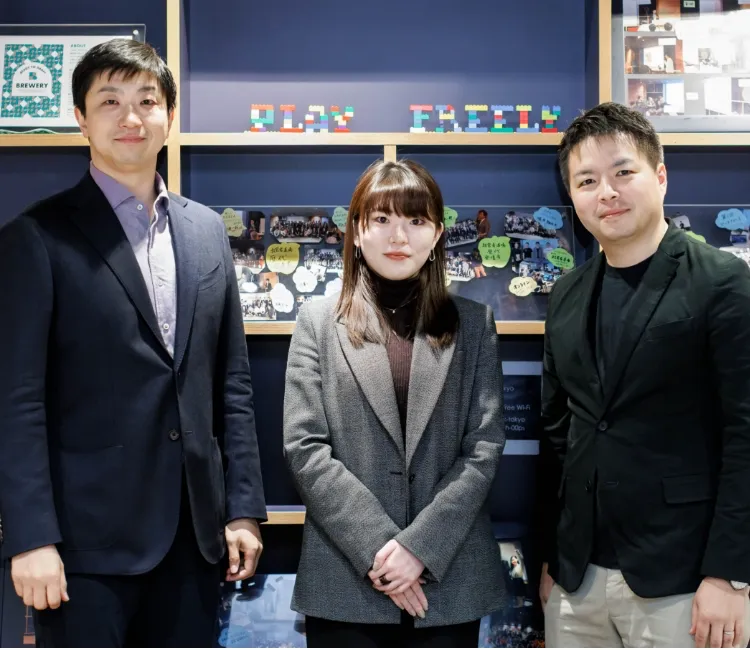In recent years, corporate management has been increasingly expected to focus not only on short-term profits but also on long-term value creation with sustainability in mind. In 2019, the Business Roundtable, composed of leaders from major U.S. companies, officially moved away from “shareholder primacy,” which prioritizes shareholder profits, and declared a commitment to “stakeholder capitalism,” which values a broader range of stakeholders, including customers, employees, and local communities.
This trend is also accelerating in Europe. In 2019, the EU announced the Green Deal, a growth strategy aimed at achieving net-zero greenhouse gas emissions by 2050. Furthermore, in 2022, it adopted the Corporate Sustainability Reporting Directive (CSRD), which requires listed companies and large corporations to disclose detailed sustainability information.
As a result, sustainability management is becoming a global standard rather than a passing trend. Simply implementing surface-level sustainability measures is no longer enough to enhance corporate value. It is increasingly important for companies to measure specific outcomes and quantify their social and environmental impact to demonstrate their effectiveness.
Companies are increasingly adopting impact investing as a means of financial growth while creating positive social and environmental impacts. Unlike traditional investments that prioritize short-term financial returns, impact investing aims to achieve both financial returns and measurable social or environmental impact. It is already well-established in Europe and the United States, and interest in it is growing in Japan as well.
SMBC Group officially launched its impact investment initiative for startups in April 2024. On February 3, 2025, SMBC Venture Capital Co., Ltd. (SMBCVC) made its first impact investment in HAKKI AFRICA Inc., a company providing microfinance services for taxi drivers in Africa. This marked the first impact investment by a major bank group’s venture capital (VC) in Japan.
First Impact Investment Case: Overview and Impact of HAKKI AFRICA’s Business
HAKKI AFRICA, the recipient of SMBCVC’s first impact investment, offers microfinance solutions for used car purchases to taxi drivers in Africa, enabling better access to financial services. While taxis are a primary mode of transportation and a significant source of employment in Africa, many drivers are unable to secure loans from formal financial institutions due to low credit scores and a lack of collateral. As a result, they are often forced to rent vehicles from wealthy owners. This not only reduces their profits due to high rental costs but also prevents them from building personal assets, as the vehicles remain under the ownership of the asset holders.
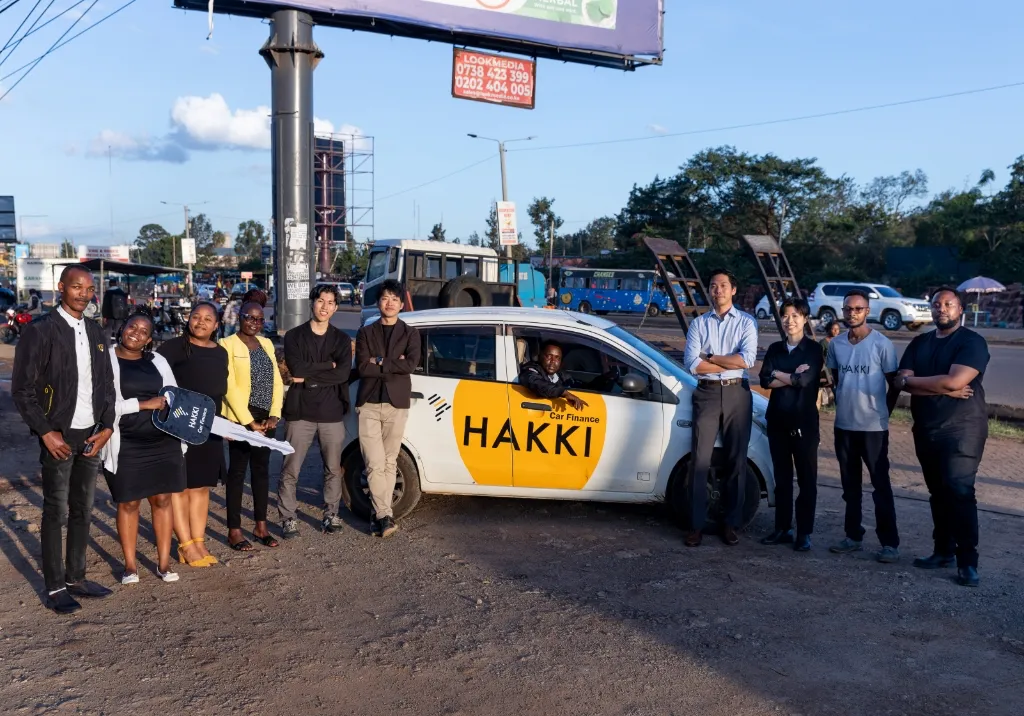
HAKKI AFRICA has developed a proprietary credit scoring system using a unique algorithm to address this issue, allowing the company to offer financing for vehicle purchases with minimized risk. This system improves financial access for drivers who would otherwise face difficulties obtaining credit from traditional lenders. By helping drivers increase their income and build assets, the company is solving social challenges and fostering sustainable economic growth in emerging economies.
The Process of Executing the First Impact Investment
On January 31, 2025, prior to SMBCVC’s execution of its first impact investment, an event on impact investing was held at hoops link tokyo, SMBC Group’s open innovation hub. The event gathered startups interested in impact investing and featured an introduction to SMBC Group’s impact investment initiatives. Reiji Kobayashi, CEO of HAKKI AFRICA, joined the panel discussion, sharing his experience as a recipient of impact investment from SMBC Group.
In the first session, Moeri Yatsu from the Sustainability Development Dept. of Sumitomo Mitsui Financial Group Inc. presented the group’s efforts toward creating social value and providing an overview of impact investing and its latest trends. Yatsu also introduced the logic model, a framework for structuring business impact through causal relationships. Yatsu emphasized, “It is crucial to envision the kind of future we want to create through the social and environmental impact of our business. To do this, we need to assess our management resources and work backward to establish a hypothesis-driven roadmap.”
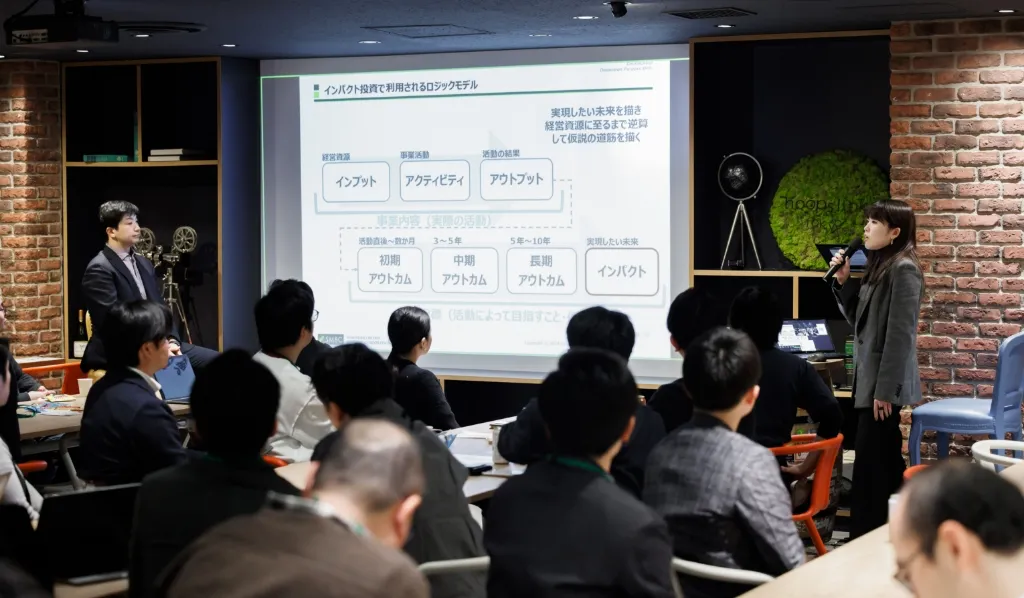
Next, Hideaki Imaeda from Investment Dept. I of SMBCVC outlined the company’s impact investment strategy and its specific processes involved.
Imaeda introduced SMBC Group’s five priority issues (materiality), for impact investment: Environment, DE&I / Human Rights, Poverty & Inequality, Declining Birthrate & Aging Population, and Japan’s Regrowth.
He emphasized that SMBC supports companies creating social value in these fields. Even after the investment decision, the group continues to provide support by regularly reviewing the logic model and KPIs in response to business growth and evolving market conditions.
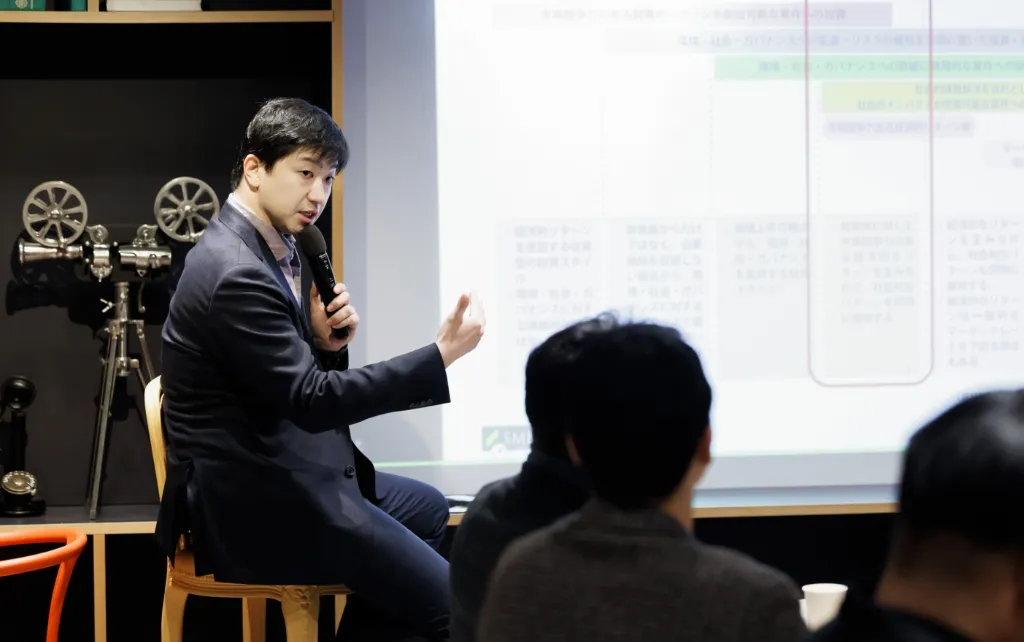
Imaeda also outlined the benefits of receiving impact investment from SMBC Group. First, it allows monitoring of both financial and social performance. Second, by measuring and managing impact, a company’s social value becomes more visible, which can be used as a tool for public relations with investors and society. Third, companies receive continuous support from SMBC Group to generate better impacts. Lastly, the investment broadens a company’s network with overseas impact investors, increasing the likelihood of securing additional funding from other impact-focused investors.
In the second session, HAKKI AFRICA’s Kobayashi spoke about his experience receiving the impact investment and its effects. Kobayashi explained that the company operates an auto loan business in Kenya, using its own credit tech* system to offer loans to taxi drivers. The system allows drivers to own their vehicles as assets after completing loan payments over three and a half years.
He shared that when SMBC Group approached him with an impact investment proposal, he decided to accept the offer because, after nearly three years since starting the business, he wanted to quantify how the lives of drivers had changed after completing their loans.
*Credit tech refers to a business domain that uses technology to create and refine new credit information.
Kobayashi reflected on his experience, stating, “I had always wanted to focus on impact assessment, but I never had the capacity to do so. During the impact investment process, experts from SMBC Group helped us develop a logic model and establish KPIs, which were tremendously valuable.”
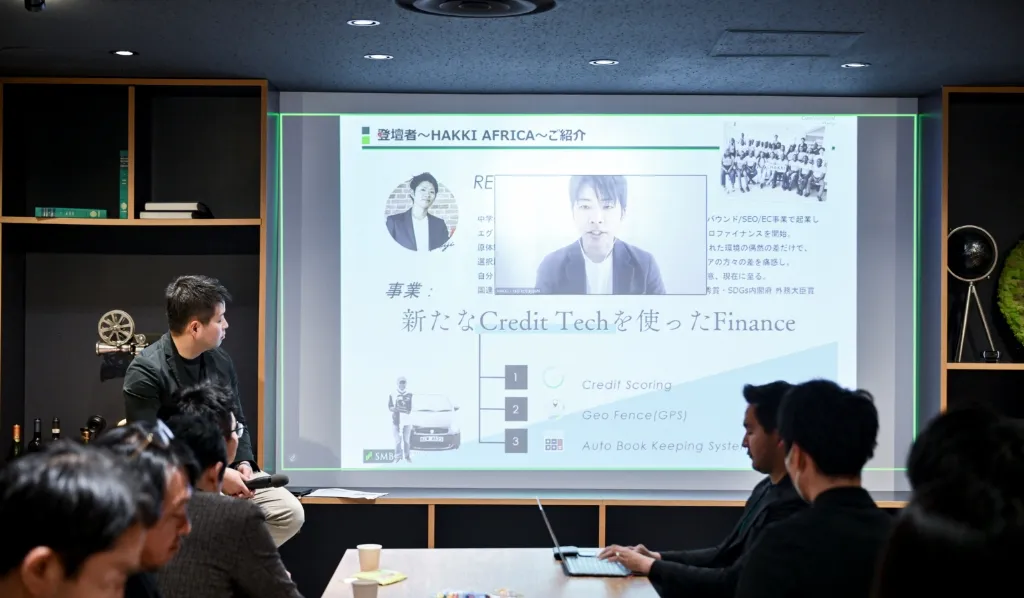
During this time, other investors often asked how the company measured its impact. Kobayashi responded, “We are developing metrics together with SMBC Group,”
which led to more positive reactions from investors. He also noted internal benefits, saying, “The impact assessment process increased employee awareness and provided greater clarity on our business direction.”
Following Kobayashi’s remarks, Hayato Hanaoka from Sumitomo Mitsui Financial Group’s Sustainability Development Dept. discussed the significance of impact assessment. He pointed out that while overseas investors do not always explicitly identify as “impact investors,” they are increasingly demanding impact visibility. Citing the example of India, where companies above a certain size are required to conduct impact assessments for CSR activities, Hanaoka emphasized that impact is no longer considered “special”, but is becoming a “common language” among overseas investors and businesses.
Finally, Kobayashi outlined his future plans, stating that he aims to expand into the Indian market while utilizing impact investment to balance business growth with social value creation. He concluded by expressing his ambition to actively showcase how investment funds from Japan are generating real social impact in Kenya and India. By becoming a successful example as the first impact investment case for SMBC Group, he hopes to inspire and support Japanese entrepreneurs who are looking to launch ventures overseas.
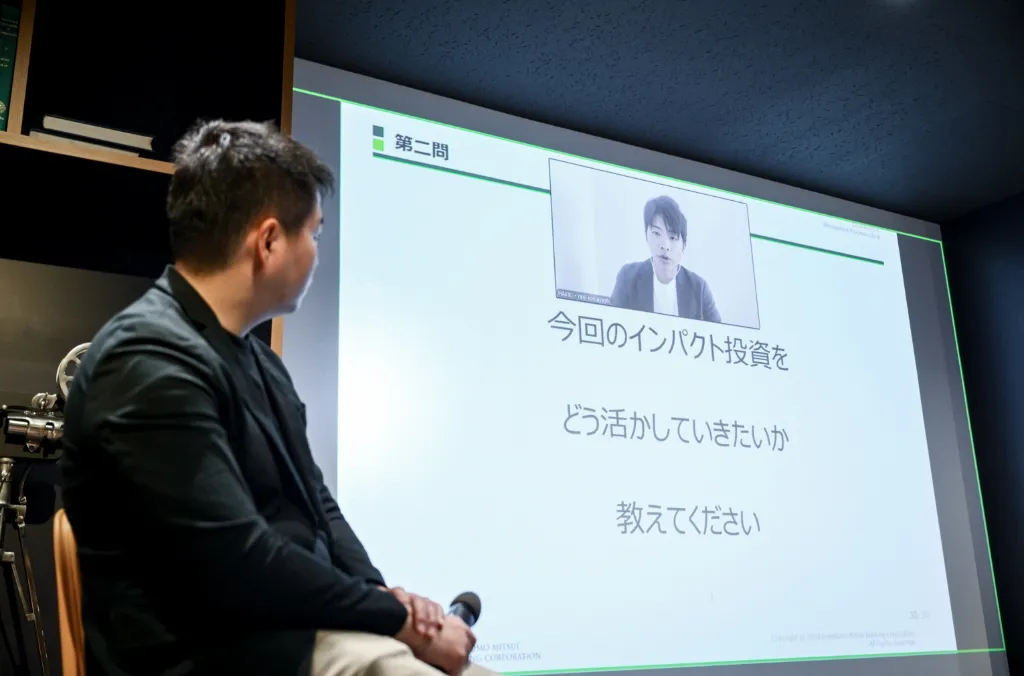
What Role Does SMBC Group Play in Expanding Impact Investment?
After the event, SMBC Group members shared their thoughts and future outlook on impact investing from their unique perspectives.
Imaeda emphasized that “Impact investing is both the tool and the form of communication that helps entrepreneurs define the world they want to create and understand their current position. It shouldn’t be seen as something exclusive; rather, entrepreneurs should feel free to engage with it in a straightforward manner.”
Regarding business KPIs, he explained that “By establishing KPIs aligned with a company’s vision, business can not only visualize social value creation but also enhance employee awareness and engagement. Ultimately, it is important to share the company’s vision, mission, and values with employees and clarify how the organization as a whole contributes to society.”
Looking ahead, Imaeda expressed his ambition to expand its network with overseas investors to help portfolio companies succeed in future fundraising rounds while also increasing the number of impact investors within Japan.
Yatsu discussed SMBC Group’s role in impact investing, stating that “It is important to ‘translate’ the passion startups have for solving social issues into narratives that resonate with investors and society.”
She expressed SMBC Group’s commitment to serving as that translator, using its perspective as a comprehensive financial group to communicate the significance and value of these businesses while providing responsible support.
Yatsu also acknowledged that SMBC Group itself is still in the process of taking on challenges in this field and expressed a desire to learn and grow together with entrepreneurs. She added, “We encourage startups to feel free to consult us about any concerns they have regarding impact assessments, logic model development, or fundraising.”
Hanaoka highlighted the growing importance of attracting global capital as funding for startups becomes increasingly challenging due to the shrinking Japanese market. He noted, “Overseas investors are beginning to show interest in the Japanese market, and having an impact-oriented perspective will be key to expanding fundraising opportunities.”
He also pointed out a common challenge: many companies create impact but struggle to communicate their impact effectively. To address this, he emphasized the need for clear impact assessment frameworks and the adoption of logic models, stating, “It is essential to demonstrate impact through robust evaluation systems clearly. As SMBC Group, we are committed to actively supporting impact visualization.”
For startups, fundraising is not just a means of securing growth capital; it is also an opportunity to build relationships with investors and society. By using impact investment as a starting point to define the future they wish to create and structuring a roadmap through logic models and KPIs, startups can foster greater alignment with their mission both internally and externally, accelerating their growth. Visualizing the impact of investee companies and supporting that process will serve as a foundation for spreading the creation of social value across society as a whole.

